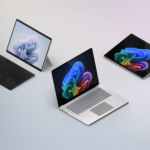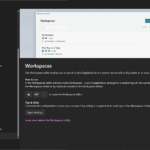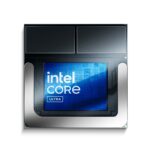Dell and Red Hat collaborate to bring Linux AI workloads to PowerEdge servers

Dell Technologies and Red Hat have announced a partnership to enhance open-source AI workloads by bringing Red Hat Enterprise Linux AI (RHEL AI) to Dell PowerEdge servers. This collaboration positions RHEL AI as a preferred platform for deploying AI applications on Dell’s PowerEdge R760xa servers.
RHEL AI, designed as an AI-optimized operating system, aims to help organizations more easily develop, test, and run large language models (LLMs) for enterprise applications. By validating RHEL AI for AI workloads on Dell hardware, this partnership seeks to simplify the implementation of AI strategies while scaling IT infrastructure.
ExpressVPN releases app for ARM-based Microsoft Windows 11 Copilot+ PCs

ExpressVPN has launched a new version of its app designed to work with Microsoft’s ARM-based Copilot+ laptops. These devices, powered by Qualcomm's Snapdragon chips, focus on artificial intelligence capabilities while maintaining efficient battery usage. With this update, ExpressVPN becomes one of the first major VPN providers to offer support for the AI-driven Copilot+ PCs.
When the Copilot+ devices were first introduced, many popular VPN applications, including ExpressVPN, were not available for the ARM-based systems. Now, ExpressVPN has made its ARM application available for download, allowing users of Microsoft’s AI-enhanced laptops to access VPN protection.
Bitdefender launches new protection solution for YouTubers

Attacks on content creators and online influencers have surged alongside the growing accessibility of deepfake technologies, posing a significant threat.
To combat these threats Bitdefender is launching a new Security for Creators package that safeguards content channels and social media accounts from takeovers and supports Windows, Mac, Android, and iOS.
Google AI brings the heat to fight scorching urban temperatures

With 2024 expected to exceed 2023 as the hottest year on record, rising temperatures continue to affect urban areas disproportionately. Urban heat islands -- locations where infrastructure such as buildings and roads trap and radiate heat -- experience temperature increases at twice the global average. This poses a particular risk to vulnerable populations, including older adults, children, and people with chronic health issues. From 2017 to 2021, heat-related deaths among those aged 65 and older increased by roughly 85 percent.
Google Research is working on AI-driven solutions to address this issue. The company's new Heat Resilience tool uses artificial intelligence to analyze satellite and aerial imagery, helping cities estimate the impact of cooling strategies such as tree planting and installing reflective surfaces like cool roofs.
Microsoft set to launch Surface Pro 10, Pro 11, and Laptop 7 -- AI-powered devices for business

Microsoft has announced the release of its latest Surface devices aimed specifically at business customers. The new lineup, which includes the Surface Pro 10 with 5G, Surface Pro 11th Edition, and Surface Laptop 7th Edition, is set to be available later this month. These devices are designed to boost productivity and foster innovation within business environments, using advanced AI technology powered by a Neural Processing Unit (NPU).
To cater to the diverse needs of its business customers, Microsoft is offering a choice between Intel Core Ultra processors and Snapdragon X Elite and Plus processors across its Surface Pro and Surface Laptop models. This allows businesses the flexibility to select the processing power that best suits their specific requirements.
How IT leaders can address online privacy risks [Q&A]

Enterprises are facing a rapidly changing privacy landscape, in which some laws contradict each other, while struggling to reduce costs and gain visibility into their privacy risks.
Indeed there’s been a recent increase in lawsuits against companies for online privacy violations that is putting significant strain on C-level executives and they're looking to their IT leaders to address all of this risk with technology.
Why enterprises need real-time visibility of their invisible threats

It's not what you know, it's what you don’t know that bites you. Cyber attacks, internal rogue employees, and general operational missteps are a constant at enterprises. The cost, both financially and human operationally, impacts morale and budgets.
Many enterprises think they have what they need to defend their attack surfaces, except for one thing: a clear view of ALL the assets that make up that attack surface -- devices, users, applications and vulnerabilities. Too many security teams are trying to protect expanding and increasingly complex infrastructures without knowing all their risk exposures.
Launch multiple apps at once with the new Workspaces module in Microsoft PowerToys v0.84.0

The time has come for PowerToys users to celebrate not just the release of a new version of the utility collection, but the addition of a new module. As previewed recently, there is now a new tool called PowerToys Workspaces that can be used to launch multiple apps from a single shortcut.
But more than just making it possible to launch a number of apps simultaneously, PowerToys Workspaces allows for these apps to be launched in saved layout and with configurations. Workspaces is by far the highlight of the newly released PowerToys v0.84.0, but there is plenty more in this update as well.
New Microsoft Windows 11 feature lets you use your Xbox controller as a keyboard

Microsoft has rolled out a new feature in the latest Windows 11 Beta channel build, adding a Gamepad keyboard layout for the on-screen keyboard that supports Xbox controllers. This new layout allows users to navigate and type using their Xbox controllers, incorporating button accelerators for certain functions. For example, the X button functions as a backspace, and the Y button serves as the spacebar.
In addition to the button accelerators, the keyboard keys in this layout have been vertically aligned to enhance navigation patterns when using a controller. This design aims to make it easier for users to move through the keys efficiently with a gamepad.
AMD and Microsoft team up to launch Windows 11 Copilot+ PCs with Ryzen AI 300 processors

AMD and Microsoft have announced a new collaboration to bring Copilot+ PCs powered by AMD Ryzen AI 300 Series processors to the market. These systems are designed to integrate advanced AI capabilities into personal computing, aiming to enhance productivity, creativity, and collaboration across various industries.
The Ryzen AI 300 Series processors are built to support multi-day battery life and enhanced security features while providing AI-driven experiences that prioritize user privacy. These processors are part of a broader effort to create a hybrid AI network that leverages localized computing alongside cloud resources, offering a versatile platform compatible with a wide range of applications.
Google is shaking things up: Android expands earthquake alerts to all U.S. states

Android users across the United States now have access to early earthquake warnings, as the Android Earthquake Alerts System expands to cover all 50 states and six U.S. territories. This system, which has been instrumental in providing life-saving alerts in California, Oregon, and Washington, is being rolled out nationwide, with the deployment set to be completed in the coming weeks. This expansion ensures that millions more people are prepared when an earthquake strikes.
Since its launch in 2020, the Android Earthquake Alerts System has relied on partnerships with the United States Geological Survey (USGS), California Governor's Office of Emergency Services (CalOES), and the ShakeAlert system to deliver accurate and timely alerts based on data from traditional seismometers. To extend these early warnings to areas without the USGS ShakeAlert system, Android phones themselves have been turned into mini seismometers.
Cheapfakes and deepfakes -- How to spot them

In recent weeks, the term ‘cheapfake’ has shot to the forefront of our national consciousness. Cheapfakes -- and their equally disruptive counterpart, deepfakes -- are becoming much more prevalent today, with the volume of this misleading content estimated to be doubling online every six months. That’s why the world’s leading search engines, social media networks and content publishers are taking notice. In recent weeks, Google announced a far-reaching plan to reduce the discoverability of deepfakes in their search rankings.
Luckily, you don’t need the resources of Google to spot altered media. Here, we’ll examine the primary differences between cheapfakes and deepfakes as well as the AI-based tools that can be used to decisively detect them.
A lack of resources and talent leaves UK SMEs dangerously exposed

In the last few years, we have witnessed some of the most seismic changes to the IT security landscape -- from global pandemics and geopolitical issues to a global energy crisis, growing cybersecurity threats, multiple country elections, and subdued economic conditions. But regardless of stretched IT and cybersecurity budgets, and a significant IT skills shortage, threat actors continue to innovate as cyber threats evolve at breakneck speed. Organizations have no choice but to defend themselves.
Today, cyberattacks are increasingly targeting small to medium-sized enterprises (SMEs), according to JumpCloud’s latest Q3 2024 SME IT Trends Report. Forty-four percent of UK SMEs have been victims of cybersecurity attacks. Nearly two-thirds (60 percent) report multiple attacks in 2024. Smaller organizations often lack the manpower of larger corporations, with nearly half (48 percent) of UK survey respondents claiming that despite their best efforts, they lack the resources and staff to secure their organization against cybersecurity threats. This is compounded by a lack of access to skilled cybersecurity professionals, with many SMEs having IT teams consisting of only one or two people.
Intel Core Ultra 200V processors are ready to power the next generation of Windows 11 Copilot+ PCs

Intel has introduced the Intel Core Ultra 200V series, its most efficient x86 processors to date. These processors are designed to enhance the next generation of AI-enabled PCs, offering a combination of performance improvements, power efficiency, and enhanced graphics capabilities.
With over 80 consumer designs from more than 20 manufacturers such as Acer, ASUS, Dell Technologies, HP, Lenovo, LG, MSI, and Samsung, the Core Ultra 200V series aims to bring advanced processing to a wide range of devices. Systems powered by 200V chips that are running the latest version of Windows will receive Copilot+ PC features as a free update starting in November.
The CrowdStrike incident exposed the urgent need for modern DevOps practices

On July 20th, 8.5 million devices running Windows crashed when cybersecurity giant CrowdStrike released a faulty software update. The ensuing outage wreaked havoc across nearly every major business sector: flights were grounded, medical procedures were delayed, and news stations couldn’t broadcast.
For the companies affected, the cost implications could reach tens of billions of dollars. However, this incident is part of a much larger, growing problem. Poor software quality cost the US economy at least $2.41 trillion in 2022. With customers and employees increasingly reliant on digital services, organizations urgently need to reassess how they deliver software to protect themselves from future failures.
Most Commented Stories
© 1998-2024 BetaNews, Inc. All Rights Reserved. Privacy Policy - Cookie Policy.




